Welcome to The Workprint’s weekly recaps of The Last of Us, HBO’s adaptation of the best-selling and award-winning video game about the last remnants of humanity trying to survive a global pandemic.
I should start off by saying that I have never played The Last of Us. I am aware that people are extremely passionate about it. However, the last console I owned was a PS2 and I primarily used that to play God of War and Guitar Hero. So please be aware I am not going to compare this show to the game in any way. I am solely judging it based on its merits as a TV show.
And those merits are outstanding.
This is a tense, edge-of-your-seat thriller. The tension ratchets so high that I had to pause the show at times so I could let out a breath. There are eight episodes left to go, but based on the pilot, this could be one of the best shows of the year.
Let’s dive into it! Spoilers ahead!
Episode 1 Recap: Lost In The Darkness
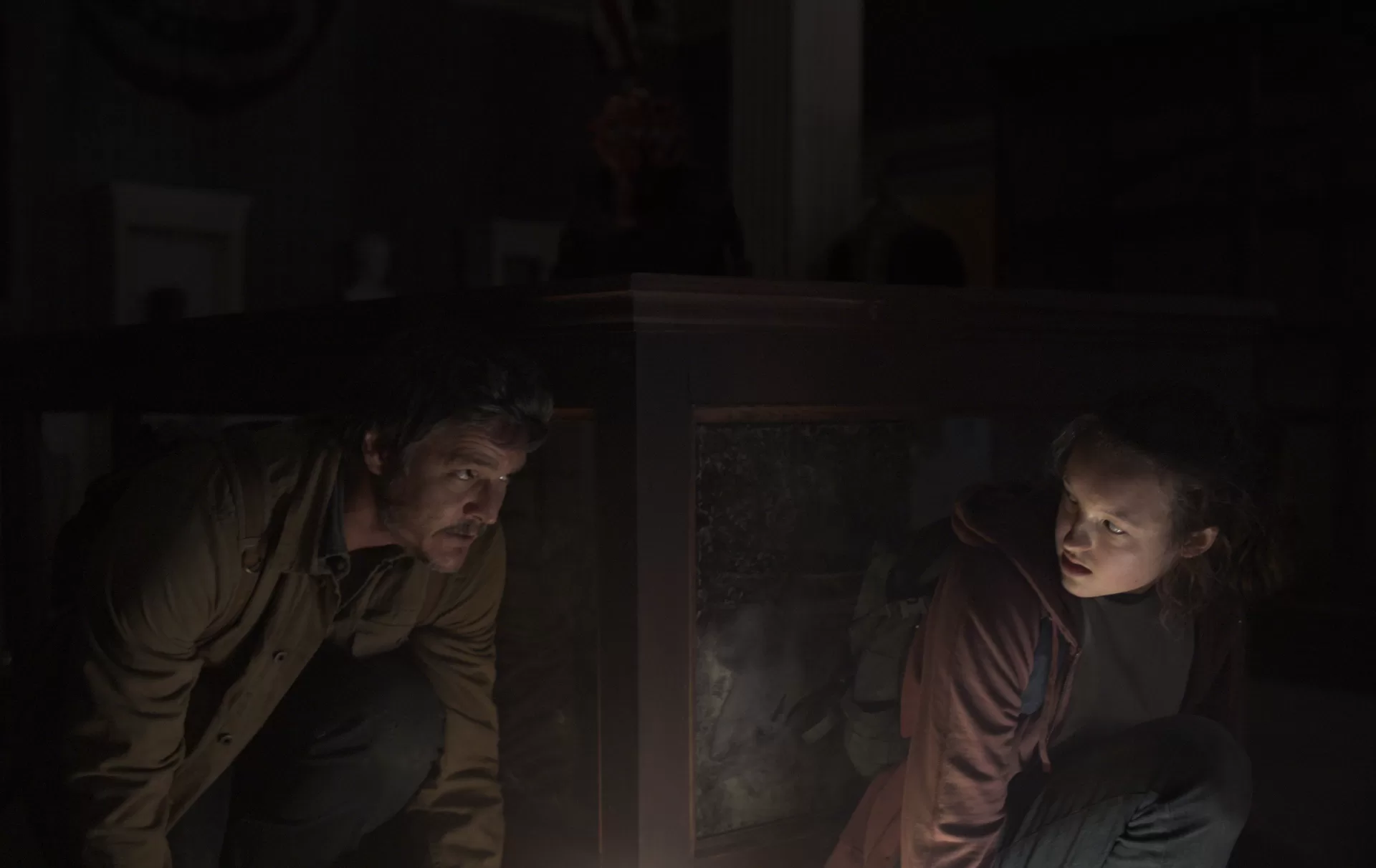
We start off with a prologue set in 1968. Two doctors are on a panel show discussing the potential for a future pandemic (In case the graphic was not enough to clue you in that it’s the sixties, the doctors smoke while on TV. It’s good for your circulation!). The first doctor comments that due to global travel, there are no such thing as regional illnesses anymore. Why, a virus from Madagascar could be in the US in a matter of weeks! Imagine!
The second doctor says it’s not viruses that bother him, it’s fungi. Fungi are the source of hallucinogenic drugs, like LSD. And certain fungi can even become parasites, taking over the bodies of ants and controlling their hosts, eating their brains until they’re practically zombies, but maintaining the body so the fungus can reproduce and infect more. Now, this can’t happen in a body with an internal temperature above 94 degrees, but if the earth got just a few degrees warmer, the fungus could mutate so it could survive in a warmer environment…
But what are the odds of that ever happening?
Cut to 2003. Pedro Pascal is Joel Miller, a single dad who runs a contractor business with his brother, Tommy (Gabriel Luna) in Austin, TX. He has a sweet teenage daughter, Sarah (Nico Parker), who worries about him working too much and forgetting to buy groceries – like pancake mix so she can make him his birthday breakfast.
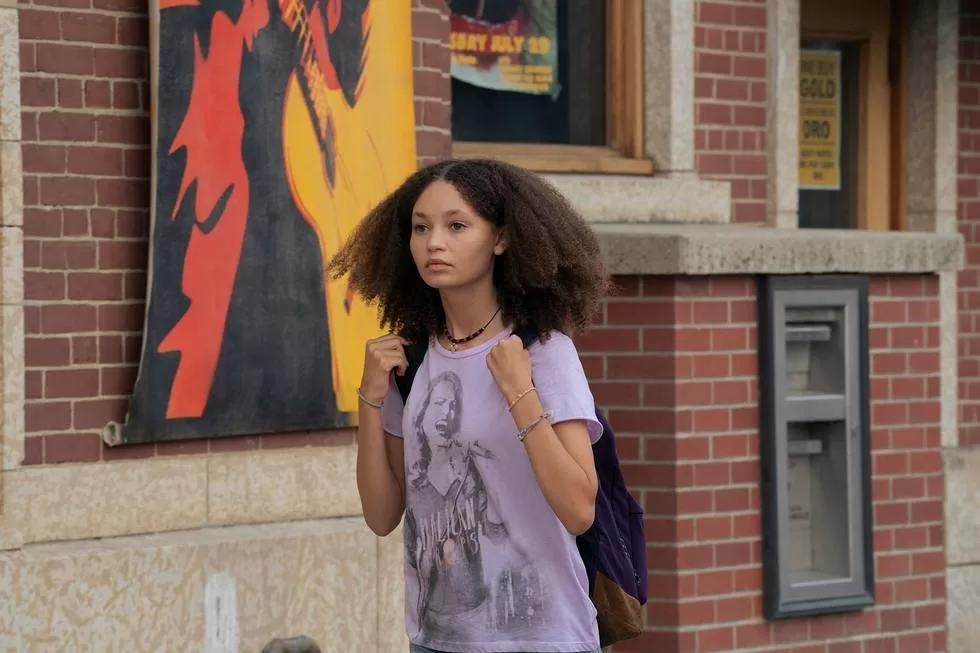
But the day starts to go very odd. Police cars and helicopters seem to be a constant presence. The news in the background is telling of strange outbreaks of violence. When Sarah goes to a watch store to get her dad’s watch fixed as a birthday present, the store owner’s wife abruptly tosses her out to close four hours early. When Sarah goes to check in on her neighbors – the Adlers, who are taking care of their infirm Nana – Nana starts to twitch when no one is watching her.
Now, obviously, this has extra resonance after the last few years we’ve all been through. The show is clearly drawing parallels. The endless sirens going through the background. Stores closing without warning. Neighbors acting strangely. These are very conscious choices to ground a fantastic scenario in our shared experiences.
Things come to a head that night. After Sarah falls asleep, Joel leaves to go bail his brother out of jail. He got in a bar fight defending a waitress who got attacked by some random patron. When Sarah wakes up later that night, she finds the Adlers’ dog pawing at her door. When she takes him back to their house, the dog gets scared and runs away. And with good reason! Nana has suddenly sprung out of her wheelchair and started to eat her daughter and son in law. The previously infirm Nana now chases Sarah out of the house where, thankfully, Joel has returned with Tommy just in time to kill Nana with a pipe wrench.
This sequence is incredibly harrowing, with tension building every moment. Their previously quiet street erupts into chaos as the Millers try to get out of town. The Adlers are staggering into the street, Joel is screaming at neighbors to get inside and lock their doors, the radio has gone dead, and the army has blockaded the freeway. Panic sets in, as people flood into the streets, and then planes start to fall from the sky. The explosion causes their car to crash. Sarah has a sprained or broken ankle and can’t run.
Tommy gets separated, so Joel has to carry Sarah away. They get chased through town by another infected zombie person, and he looks about ready to eat another meal when a soldier shoots him down. Joel is relieved until the soldier gets orders on the radio and then points his gun at Joel and his daughter. Obviously, the army has orders not to let anyone out of the containment area and use any means necessary.
Joel pleads for his daughter and tries to dodge the bullets, rolling down a hill. The soldier stands over him about to finish him off, when a shot is fired and he goes down. Tommy caught up in time to save Joel, but poor Sarah was not so lucky, She dies in Joel’s arms, while he sobs.
Show runner Craig Mazin has a lot of experience in dramatizing disasters. He helmed the excellent Chernobyl series on HBO a few years ago and this strikes a similar vein. The panic and fear is visceral, the lack of good information creating even more terror. The first half hour is just tension building and building until the dam bursts.
Twenty years have now gone by. Boston is in ruins, overgrown with vines (and presumably fungus), except for a walled off section where the last remaining uninfected humans live. A young boy staggers out of the forest into the city, where he’s taken into custody by soldiers. The nice soldier lady questions him while her colleague scans him. When his scanner pings red, the nice soldier lady tells him they’re going to give him some medicine and then get him some of his favorite food and all the toys he could want. And considering how run down and hardscrabble Boston looks, it’s a safe bet that red isn’t a good color and the medicine is going to cure him the same way that injecting bleach will cure Covid. It’s a numbing scene, and a good indication of what humanity has come to in the last two decades of dealing with this plague.
Boston, and presumably the entire country, is now under control of FEDRA. FEDRA troops roam the streets, keeping order and enforcing the harsh curfews and executing anyone who goes outside the quarantine zone (And you complained about wearing a mask at the grocery store, huh?)
Joel Miller is here, scraping by and earning food rations by doing jobs assigned by FEDRA. Jobs like burning infected corpses, like that of the young boy from the last scene. And infection happens fast. According to one of the charts on the wall, the infection starts in your head after 15 minutes, spreads to your torso after a couple hours and completely consumes you within a day, turning you into a fungal zombie.
Joel is desperate to get out of Boston. He last heard from his brother, Tommy, three weeks ago and has to go find him. He was last seen in Wyoming, and Joel needs to scrounge a working car to get out there and find him.
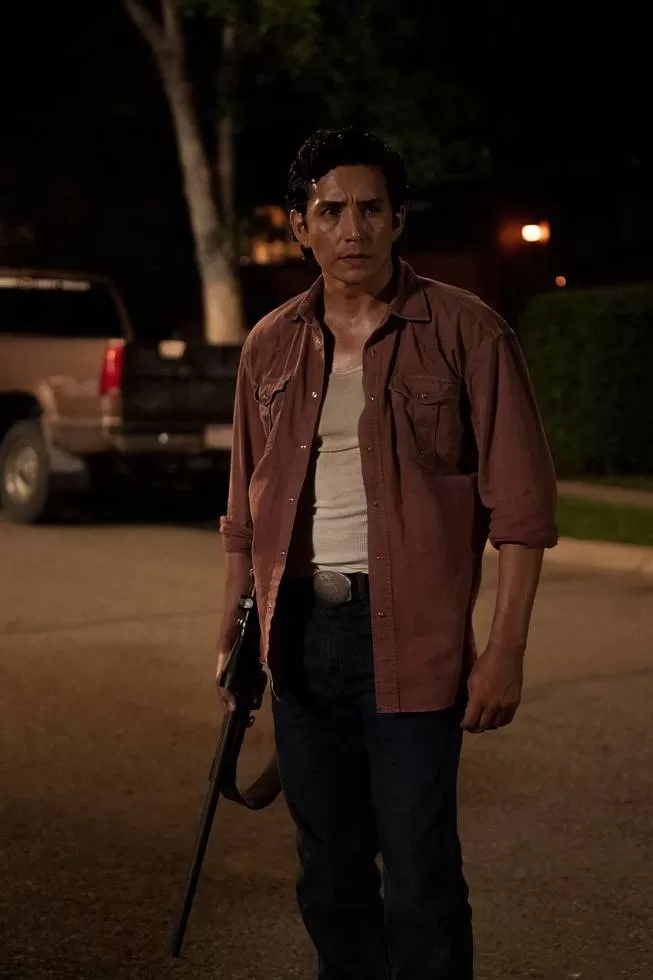
Joel earns extra by selling drugs on the side and other black market items, including to bent FEDRA soldiers who need his pills to dull their pains and stay awake. His main buyer has agreed to sell him an old shell of a car. Tess, his partner and fellow smuggler, is trying to get him a battery. The only problem is, her supplier, Richard, took their money, double crossed her, and found another buyer, namely the local Firefly chapter.
The Fireflies are a terrorist group who are chafing at the military dictatorship. They’re hitting targets all over Boston. Marlene, their leader, needs the car battery to get some very precious cargo out of the city, namely a young girl named Ellie (Bella Ramsey).
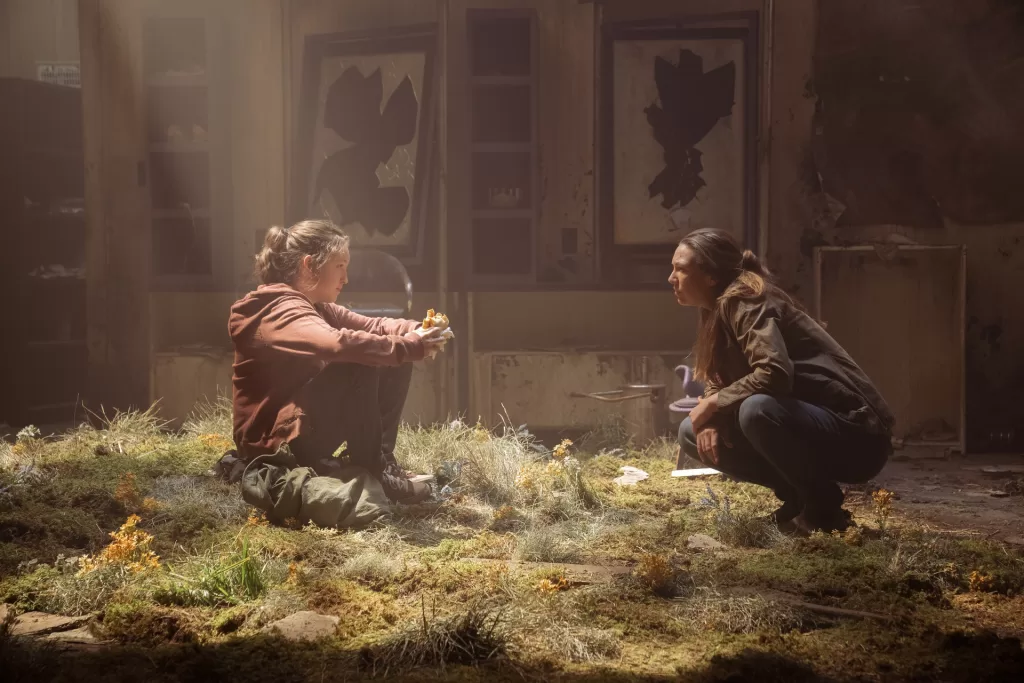
Ellie has been chained up in the Firefly safe house while the rebels perform daily tests on her without explanation. Ellie is eager to get out. Marlene explains to her that she will, but that she has a greater purpose that she can never tell anyone about. But once they get their battery, they can get out of town.
Tess and Joel track down Richard to the Firefly house, but they arrive too late. Richard’s battery was no good, and when the Fireflies tried to get their money back a fire fight erupted. There are bodies everywhere and Richard is dead. Marlene is seriously injured, and she has no choice but to entrust Ellie to Joel and Tess. Get her to the old statehouse, the other Fireflies will take it from there, and Joel can get a car to get to Wyoming. Joel agrees, reluctantly.
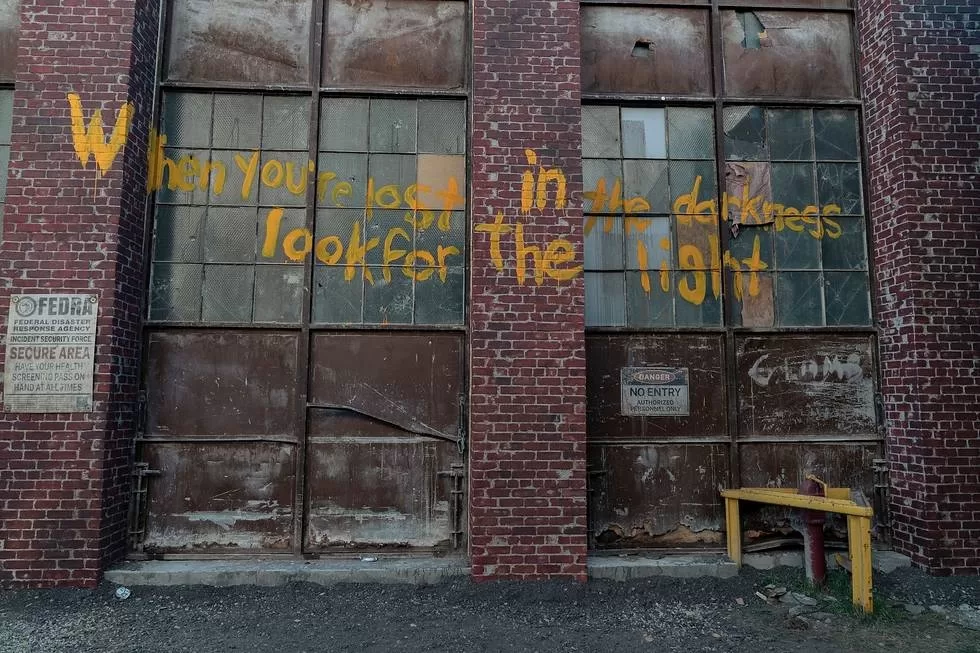
They sneak out through the smuggler tunnels to get outside the wall. They are almost free when they get caught by the soldier Joel’s been selling drugs to. They try and barter for their freedom, but the soldier is pissed. He warned Joel to stay off the streets earlier because of the increased sweeps, yet here he is. He forces the trio to their knees so he can scan them for infections. Joel and Tess are clean, but as he starts to scan Ellie, she stabs him. In the chaos, Tess sees the scanner.
It’s red. Ellie is infected.
Ellie insists she’s not sick. She’s been infected for three weeks, yet the fungus hasn’t claimed her. Which makes it clear why the Fireflies were so interested in her. If she’s been able to hold off infection for three weeks, she might be the key to stopping it.
The soldier isn’t so impressed. He grabs his rifle and aims at Joel. This causes Joel to flash back to his daughter getting gunned down twenty years earlier. He lunges, catching him off guard, and beats him severely and possibly killing him. Joel, Tess, and Ellie head off into the night, headed for the statehouse.
So, in 80 minutes, The Last Of Us has shown us the apocalypse and set into motion the events that could save it. Pretty good for a pilot episode. This does a marvelous job of giving us exposition without overwhelming us with an info dump. Scenes pay off in unexpected and terrifying ways. The shots of the young boy’s shoes as he comes out of the woods are echoed when the same feet and shoes are thrown into a pyre.
We’ve already planted the seeds (spores? Ok, sorry) of Pedro Pascal being another surrogate father figure, reluctantly helping a young and important charge find their way. (It’s going to be tough when this show and the Mandalorian overlap in six weeks). And I am hooked. If the game is even half as intriguing and exciting as this, it’s no wonder it’s considered a classic. I am eagerly awaiting more in the weeks to come.
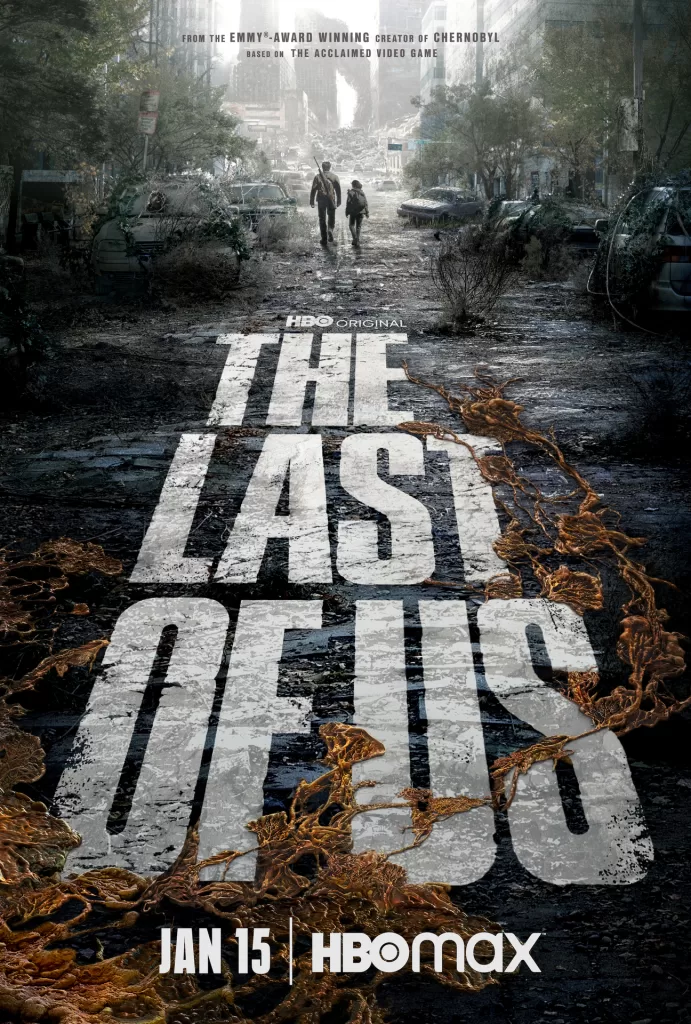
Episode Rating 5 out of 5
